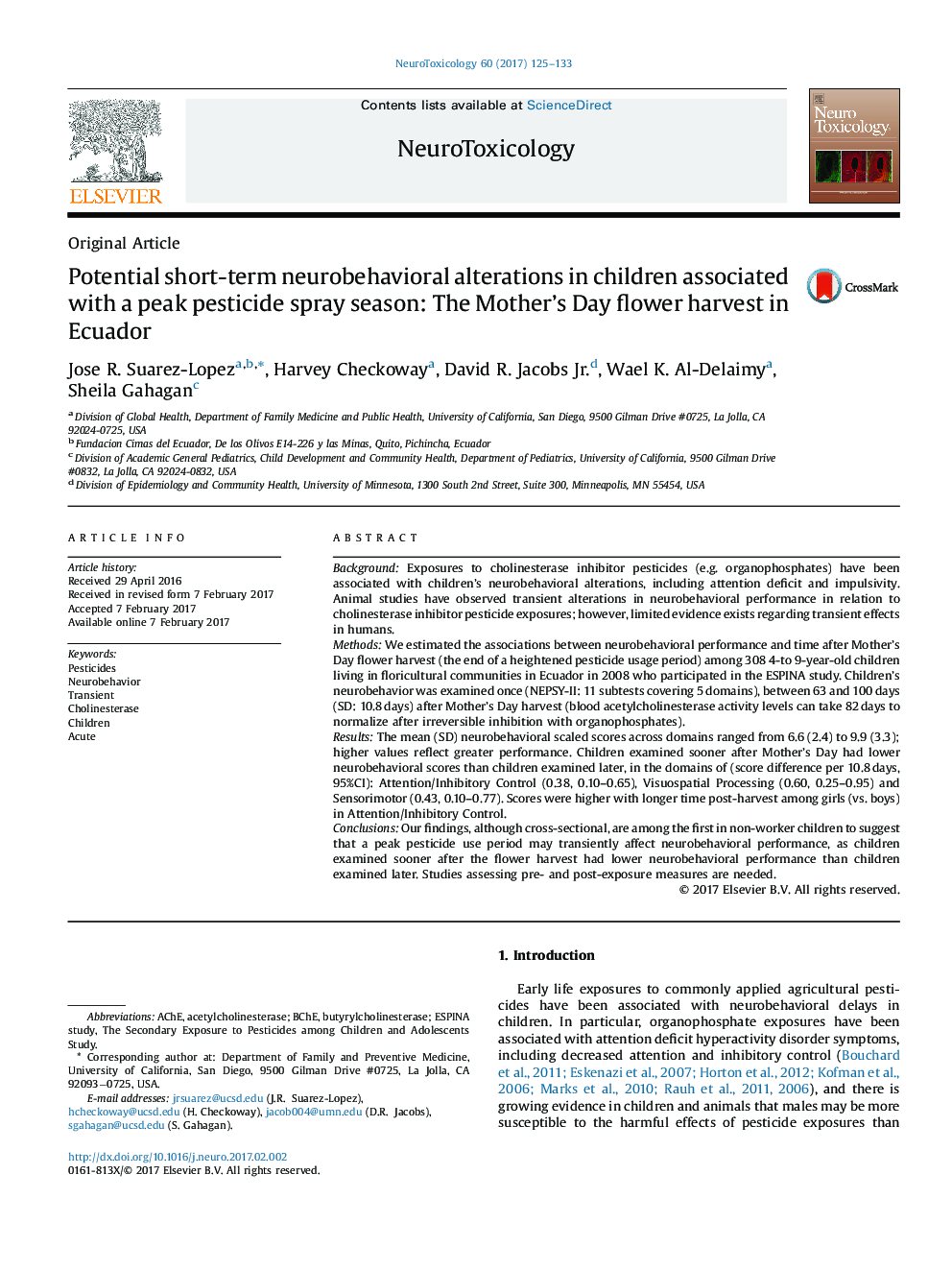| Article ID | Journal | Published Year | Pages | File Type |
|---|---|---|---|---|
| 5560830 | NeuroToxicology | 2017 | 9 Pages |
â¢Little is known about acute neurobehavior change related to pesticide spray periods.â¢Ecuador's Mother's Day (MD) flower production is a period of high pesticide use.â¢We examined 308 non-worker children aged 4-9y, once between 63 and 100 days after MD.â¢Neurobehavioral scores were worse in children examined sooner (vs later) after MD.â¢Associations were strongest with attention/inhibition, visuospatial, and sensorimotor.
BackgroundExposures to cholinesterase inhibitor pesticides (e.g. organophosphates) have been associated with children's neurobehavioral alterations, including attention deficit and impulsivity. Animal studies have observed transient alterations in neurobehavioral performance in relation to cholinesterase inhibitor pesticide exposures; however, limited evidence exists regarding transient effects in humans.MethodsWe estimated the associations between neurobehavioral performance and time after Mother's Day flower harvest (the end of a heightened pesticide usage period) among 308 4-to 9-year-old children living in floricultural communities in Ecuador in 2008 who participated in the ESPINA study. Children's neurobehavior was examined once (NEPSY-II: 11 subtests covering 5 domains), between 63 and 100Â days (SD: 10.8Â days) after Mother's Day harvest (blood acetylcholinesterase activity levels can take 82Â days to normalize after irreversible inhibition with organophosphates).ResultsThe mean (SD) neurobehavioral scaled scores across domains ranged from 6.6 (2.4) to 9.9 (3.3); higher values reflect greater performance. Children examined sooner after Mother's Day had lower neurobehavioral scores than children examined later, in the domains of (score difference per 10.8Â days, 95%CI): Attention/Inhibitory Control (0.38, 0.10-0.65), Visuospatial Processing (0.60, 0.25-0.95) and Sensorimotor (0.43, 0.10-0.77). Scores were higher with longer time post-harvest among girls (vs. boys) in Attention/Inhibitory Control.ConclusionsOur findings, although cross-sectional, are among the first in non-worker children to suggest that a peak pesticide use period may transiently affect neurobehavioral performance, as children examined sooner after the flower harvest had lower neurobehavioral performance than children examined later. Studies assessing pre- and post-exposure measures are needed.
